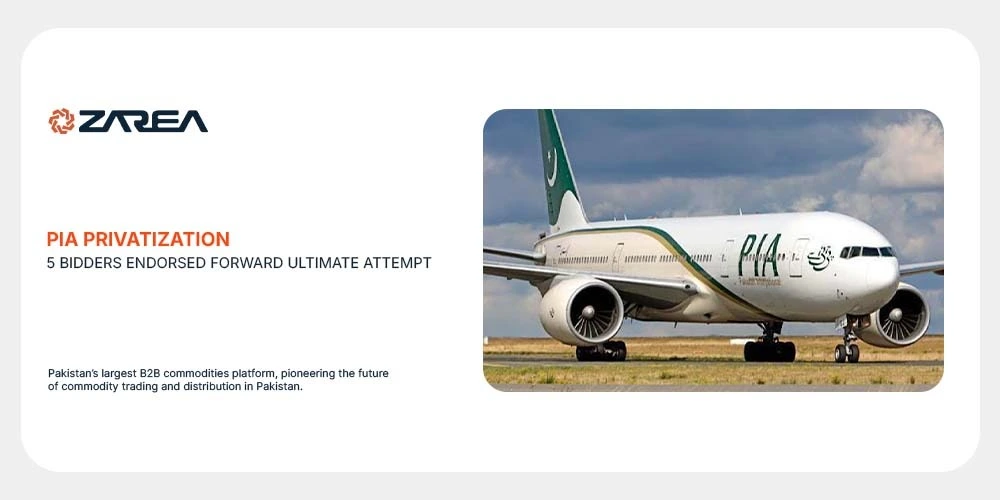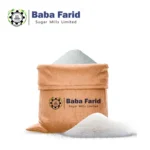Introduction – PIA Privatization:
Pakistan International Airlines (PIA Privatization) has taken a significant step ahead in a historic move. The government’s ongoing attempt to privatize might significantly alter the Pakistani aviation industry’s future. The national flag carrier has always been going private after years of operational setbacks. Meanwhile, the Pakistani think tank expects that it’s similar to financial instability, and unsuccessful privatization initiatives.
With five major bidders now pre-qualified, this effort marks Pakistan’s most serious and structured push yet toward offloading its loss-making airline—a key benchmark under its ongoing $7 billion International Monetary Fund (IMF) bailout program.
Background – A Giant in Struggle:
PIA was formerly one of the most reputable airlines in the world when it was founded in 1955. It established international standards for service, created new routes, and trained employees for other big airlines. But decades of political interference, mismanagement, and unchecked debt accumulation eroded its reputation.
Today, PIA sits on more than $2.5 billion in losses, and despite a brief return to operational profitability in FY 2024-25, the airline remains a financial liability. The 2024 privatization attempt failed due to inadequate bids, with Blue World City’s $36 million offer falling far short of the Rs85 billion floor price. This time, however, the approach is more rigorous and promising.
Visit Zarea now to view product listings, place your bulk buy order, and receive the most latest prices! Pakistan’s largest business-to-business (B2B) commodity marketplace, setting the standard for future commodity distribution and trade in the nation.
The Latest Privatization Attempt – A Shift in Strategy:
The Pakistani Privatization Commission relaunched the bidding process in April 2025, extending an invitation to both domestic and foreign investors to purchase 51 percent to 100 percent of PIA. This round is intended to draw serious, reliable bids with increased transparency, more stringent qualifying conditions, and legal protections for purchasers.
By June 19, 2025, five entities had submitted complete pre-qualification documents. These companies have now been granted access to PIA’s virtual data room to carry out due diligence—a crucial step before final offers are placed.
Meet the 5 Qualified Bidders:
1) Lucky Cement, Hub Power, Kohat Cement & Metro Ventures
A powerful consortium representing some of Pakistan’s largest industrial players. Their combined financial strength and operational expertise make them a frontrunner in this bid.
2) Arif Habib Corp, Fatima Fertilizer, The City School & Lake City Holdings
A unique blend of investment, agriculture, education, and real estate, this group signals a strong interest in diversification and strategic value creation.
3) Fauji Fertilizer Company Ltd
A military-owned enterprise with a legacy of efficiency and financial discipline. Their entry signals institutional confidence in PIA’s transformation potential.
4) Airblue Ltd
A private Pakistani airline familiar with domestic and international aviation challenges. If selected, their integration could bring synergy to PIA’s future operations.
5) Serene Air, Bahria Foundation & Equitas Capital LLC (USA)
This consortium includes a US-based firm and a mix of local aviation and defense-linked entities, potentially bringing international expertise and capital.
What Makes This Round Different?
This attempt to privatize PIA is not just a routine transaction—it’s a test of Pakistan’s commitment to structural reform. Several changes set this round apart:
- Full Divestment Option: The government is offering up to 100% stake.
- Debt Offloading: Nearly 80% of PIA’s debt has been absorbed by the government.
- Tax & Legal Incentives: Sales tax on leased aircraft has been scrapped; protection from historical liabilities has been offered.
- Foreign Airline Partnership Allowed: The winning bidder may bring in a foreign airline to help run operations.
Implications for Pakistan’s Economy:
The PIA privatization process carries significant economic weight:
- Foreign Direct Investment (FDI): It could attract meaningful international investment.
- IMF Compliance: The successful sale supports key IMF reform conditions.
- Privatization Momentum: Should this agreement be successful, it could open the door for the sale of further public properties, such as the Roosevelt Hotel and other companies in the power industry.
- Market Confidence: Investor trust in Pakistan’s economic management may be regained through an open and competitive auction.
Challenges and Risks Ahead:
Notwithstanding encouraging advancements, there are obstacles in the way of privatization:
Due Diligence Period: The bidder will now have up to two months to evaluate the PIA’s finances and operations. So any red flags that might cause the transaction could derail the whole process.
Regulatory Delays: Bureaucratic inertia or political unrest may stop the procedure immediately.
Labor Resistance: The PIA’s unions have long opposed privatization. So if they felt any concern about job losses and altered working conditions, they could halt the process.
Nonetheless, government officials remain confident. Privatisation Minister Muhammad Ali recently stated, “We’re targeting Rs86 billion in proceeds this year from PIA and other deals. We are confident this round will succeed.”
What’s Next?
With final bids and talks anticipated in Q4 of 2025, the shortlisted bidders will now begin a thorough due diligence process. If successful, PIA might have new leadership before the year is out.
In addition to PIA, the government is also planning to privatize:
- The Roosevelt Hotel (New York)
- Power Distribution Firms
- Other non-performing state-owned enterprises
Final Thoughts:
The privatization of PIA is more than a corporate transaction—it’s a litmus test for Pakistan’s ability to modernize its economy, attract credible investors, and restore operational efficiency to a once-legendary airline.
With five pre-qualified bidders, extensive restructuring already completed, and strong government intent, this may finally be the ultimate attempt that delivers results.
FAQ’s:
Who is bidding for PIA?
The Yunus Brothers Group, which owns Lucky Cement and a number of energy companies, is getting ready to submit a bid for the airline, according to sources that Reuters cited. A group headed by Arif Habib Limited, which allegedly has partners including Fatima Fertilizer, Lake City, and The City School, is another strong candidate.
Is PIA privately owned?
With an emphasis on supporting the growth and prosperity of the national airline and its affiliated companies, PIAHCL functions in compliance with the Companies Act, 2017, State-Owned Enterprises (Governance and Operations) Act, 2023, and State-Owned Enterprises Ownership and Management Policy, 2023.
What is the asking price of PIA?
After only one offer, which was far less than the asking price of almost $300 million, it was unable to proceed with its initial attempt to privatize the PIA last year.
What is the salary of the CEO of PIA?
According to the statement, the gross salary of the PIA CEO was Rs959,468; the chief human resources (HR) officer, Air Commodore Aamer Altaf, received Rs639,778; the chief information officer, Air Commodore Khalid Barlas, received Rs596,464; and the CEO of Sky Rooms Ltd., Air Commodore Jibran Saleem Butt, received Rs561,574.
What is the downfall of PIA?
High taxes on fleet expansion, an antiquated fleet, and a lack of funding are additional issues that contributed to PIA’s demise. According to the article, the airline’s obligations, which include fuel charges, vendor debt, and government-backed loans, have already surpassed Rs740 billion.

































